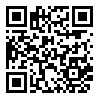مجله رویش روانشناسی از دادن گواهیهای کاغذی معذور است. لطفا تقاضا نکنید. همه گواهی ها در صفحه شخصی کاربران موجود است.
year 10, Issue 4 (Summer 2021 2021)
Rooyesh 2021, 10(4): 181-196 |
Back to browse issues page
Download citation:
BibTeX | RIS | EndNote | Medlars | ProCite | Reference Manager | RefWorks
Send citation to:



BibTeX | RIS | EndNote | Medlars | ProCite | Reference Manager | RefWorks
Send citation to:
Ahmadvand Shahverdi M, Besharat M A. (2021). Body dysmorphic disorder: Review article. Rooyesh. 10(4), 181-196.
URL: http://frooyesh.ir/article-1-2489-en.html
URL: http://frooyesh.ir/article-1-2489-en.html
1- M. A. in General psychology, Faculty of Psychology and Education, University of Tehran, Tehran, Iran.
2- Professor, Faculty of Psychology and Education, University of Tehran, Tehran, Iran. ,besharat@ut.ac.ir
2- Professor, Faculty of Psychology and Education, University of Tehran, Tehran, Iran. ,
Abstract: (3943 Views)
According to the Fifth Edition of the Diagnostic and Statistical Manual of Mental Disorders (DSM-5), Body Dysmorphic Disorder (BDD) is classified as obsessive-compulsive and related disorders. The predominant feature of this relatively common disorder is a sense of deficiency in body Image and body shame causing compulsory behaviors to fix the deficits or flaws in physical appearance. This review paper first presents the definition and concept of BDD. epidemiology, etiology, comorbidity, theories, and therapeutic approaches to this disorder are also reviewed. Next, common medication treatments and cognitive-behavioral interventions for treating BDD are discussed. Ultimately, paradoxical psychotherapy is presented as a novel psychotherapy model for treating BDD.
Keywords: Body Dysmorphic Disorder (BDD), body image, feeling of shame, Obsessive–compulsive disorder, treatment
Type of Article: systematic review |
Subject:
Clinical Psychology
Received: 2020/12/4 | Accepted: 2021/01/10 | ePublished: 2021/07/1
Received: 2020/12/4 | Accepted: 2021/01/10 | ePublished: 2021/07/1
Send email to the article author
| Rights and permissions | |
 |
This work is licensed under a Creative Commons Attribution-NonCommercial 4.0 International License. |







